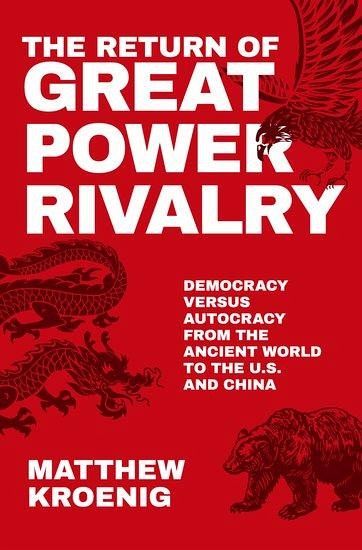
The Return of Great Power Rivalry
Democracy Versus Autocracy from the Ancient World to the U.S. and China
Versandkostenfrei!
Versandfertig in 2-4 Wochen
28,99 €
inkl. MwSt.
Weitere Ausgaben:

PAYBACK Punkte
14 °P sammeln!
In The Return of Great Power Rivalry, Matthew Kroenig argues that democracies actually have unique economic, diplomatic, and military advantages in long-run geopolitical competitions and compares these to the geopolitical advantages and disadvantages possessed by autocratic powers. He contends that despite all of its faults, America is better positioned for this new era of major power rivalry than either Russia or China. This is a vitally important book for anyone concerned about the future of global geopolitics. It provides both an innovative way of thinking about power in international polit...
In The Return of Great Power Rivalry, Matthew Kroenig argues that democracies actually have unique economic, diplomatic, and military advantages in long-run geopolitical competitions and compares these to the geopolitical advantages and disadvantages possessed by autocratic powers. He contends that despite all of its faults, America is better positioned for this new era of major power rivalry than either Russia or China. This is a vitally important book for anyone concerned about the future of global geopolitics. It provides both an innovative way of thinking about power in international politics and an optimistic assessment of the future of American global leadership.













